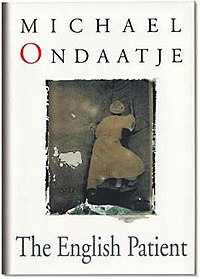I love sad stories. I promise. Bridge to Terabithia is my Favorite-capital-F, and The English Patient and Atonement, both films and novels, are to me the epitome of beauty. I raised five years worth of middle school students on Of Mice and Men and Romeo and Juliet, assuring their parents at every Parents Night that their children's emotional lives would only be deepened and enriched, not scarred, by the inevitable tragedy in each of these texts, and now I gleefully teach an eleventh grade curriculum where virtually every text ends in a suicide.
I believe strongly that young readers need to be exposed to these texts. Need to be changed and challenged by the rich and immense griefs which are now an essential thread of our cultural narrative and inevitably part of our own lives. And I indulge, occasionally, in revisiting these texts for some good old-fashioned borderline-masochistic catharsis.
But John Green's monumentally popular, beautifully-titled The Fault in Our Stars is something else entirely.
Now, I say all of this not to disparage John Green or his project. And I am all for anything -- anything -- that gets people to read (I'm talking to you, Stephenie Meyer). And his work is well-written, and delightfully wordy, and his narrative voice is smart and literary and true. So there's that.
And there are children with cancer who need their stories told. And those stories are certainly worth telling.
But I get the sense from TFIOS that Green is not writing for kids with cancer. He is writing for kids who are healthy.
And perhaps it is actually a mark of his success that in so doing, he exposes readers who have never faced real, actual, living, breathing death, either literal or metaphorical (death of a loved one, death of a relationship, death of a dream...I could go on) to Real Death's gaunt and haunting reality.
In Green's star-cross'd lovers Augustus and Hazel (and they call themselves such, placing themselves and Green's story squarely and self-consciously within that tradition) he artfully builds a new pair of lovers for the ages, lovers who somehow deny and defy their youth through the hospital equipment that literally weighs them down throughout the story and their overpowering awareness of their own mortality and their own legacy.
But Green doesn't just play with the star-cross'd lovers trope. He kills it. And then buries it. And makes it attend its own funeral.
Oh, Hazel and Augustus are likable and smart and all of the wonderful things we hope our protagonists will be. They are Leslie and Jess, Juliet and Romeo, Viola and Shakespeare.
Many people I respect love this book. And I prepared to lose myself within its tragic pages with the total abandon restricted to those most wonderfully sad reads listed above. But, Dear Reader, by the time I was 100 pages in I had to put it down between chapters in order to catch my breath. What I experienced was not the sweet sadness of Lennie's final gaze out into the hills of California or Jess' stoic resolve to live on for what Leslie represented to him, but the actual real pain of facing something truly terrible.
Perhaps this is a mark of Green's success. But as an adult writing for a young adult audience, I wonder about his purpose. Even the adult who has lived the most charmed life has had to face some kind of real loss and the grieving process that follows. A process that sometimes feels a lot more like stasis. TFIOS evoked that kind of loss for me.
By the time Augustus listens to Hazel read his own eulogy, I had to stop altogether.
I don't know. Maybe I just talked myself out of my own argument. But I expected to love this book.
And instead it just brought to mind the real pain and loss I've felt in my own charmed life.
And I can't help but imagine that my seventeen-year-old self wouldn't have known what was happening to her under Mr. Green's skillful hand.
And that makes me sad.
But maybe that's the point.
Am I being hypocritical here?







